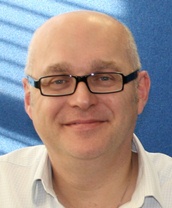Openreach has boosted its high bandwidth optical capability with a UK-wide 40Gbps and 100Gbps service that is capable of delivering ten times more traffic capacity than existing solutions.
The new services are supported by Ciena's 6500 Packet-Optical Platform and enable comms providers to connect multiple sites more efficiently by cost-effectively transporting larger amounts of data over longer distances.
Comms providers using the service can offer flexible, high bandwidth, multi-site connectivity and cloud-based services to their enterprise and data centre customers.
The optical services will also give enterprises and storage providers the tools to offer a broader range of services and applications, including the ultra-low latency facilities required by particular industries such as high frequency trading in the financial sector or synchronous data backup.
They will also enable businesses to locate in the most strategic locations, with the assurance of having access to high bandwidth, high quality connectivity.
Jon Hurry, MD, Strategy, Commercial, Portfolio & Policy, Openreach, said: "As more and more businesses move to high bandwidth cloud-based services and applications our CP customers are looking to support them with a much broader range of high quality connectivity options.
"These new optical services from Openreach are future proof, and they take advantage of BT's investment in fibre infrastructure across the UK. They also come with the backing of our combined professional service teams, giving customers access to expertise and support from both Openreach and Ciena."
Nigel Williams, VP Global Channels and Strategic Alliances, Ciena, added: "Demand for high bandwidth services and business critical applications is increasing at an exponential rate.
"Expanding our relationship with Openreach ensures that providers get the flexibility and scalability they need to build a competitive advantage in the marketplace, offer a broader portfolio of next-generation services, and the applications critical to the success of their enterprise clients."
The product, to be unveiled on April 29th, took just nine months to develop from concept to launch. "With the market growing at pace, and requirements for 100G solutions already evident, we wanted to offer a solution fast," explained Darren Wallington, Head of Optical Solutions.
"We already had a proven capability for best practice use of third parties to carry out installation on our behalf, so deepening our long standing supplier relationship with Ciena to bring the 6500 to market in this way was a no-brainer. Importantly, the approach does not change any of the planning, order or repair touch points for customers. It simply means that all installation and repair functions are carried out by Ciena."
The close collaboration between Openreach and Cienna helps to align best practice design choices with specific sector requirements. "We are also working together on continued lifecycle improvements such as fault finding and diagnostics," added Wallington. "We now have the potential to bring additional 6500 capabilities to market just as fast in the future."
The spirit of collaboration also played a role in shaping the look of new services having taken account of the customers' perspectives. "We received a full wish list from one customer at the oust," added Wallington. "We reviewed this with all customers and provided a view on the items we could deliver. The period of development collaboration with customers that followed earned feedback via the OTA (telecoms adjudicator) as an example on how Openreach should engage and develop products."
The overall Optical market is forecast to grow by a significant 135% over the coming years, representing a big opportunity for comms providers. The size of the opportunity and speed of monetisation is illustrated by the big advances made by Openreach following its previous major Optical product launch - the ADVA FSP 3000 launched in January 2012 - which now has over a thousand installations. Furthermore, at the close of 2013, Openreach's customers were collectively supplying industry with 20TB/s of access and backhaul data capacity via its Optical portfolio alone.

 By Clive Jefferys, JMA Network: We've all been waiting for a few months for this to hit the headlines. Unemployment has fallen below seven per cent and even more importantly, wage rises have started to outstrip inflation.
By Clive Jefferys, JMA Network: We've all been waiting for a few months for this to hit the headlines. Unemployment has fallen below seven per cent and even more importantly, wage rises have started to outstrip inflation.